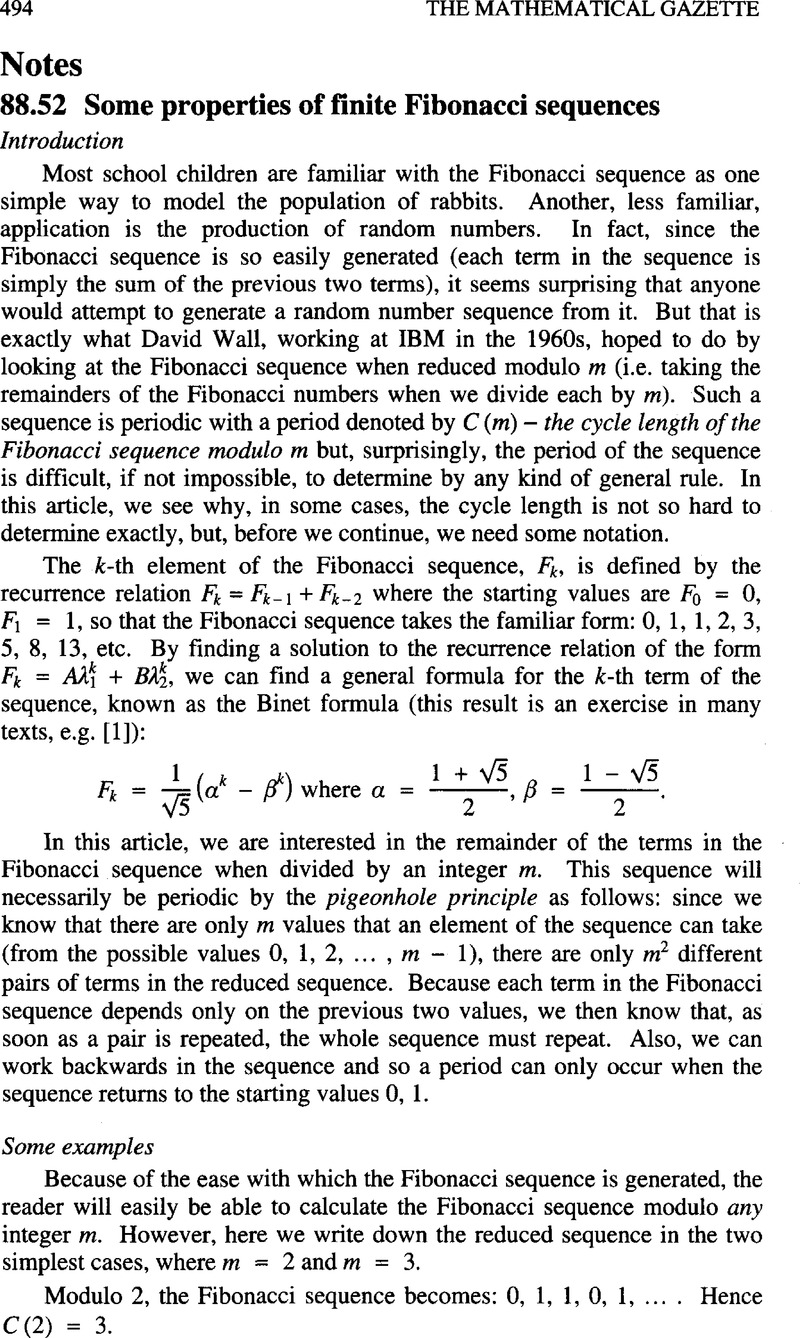Crossref Citations
This article has been cited by the following publications. This list is generated based on data provided by Crossref.
Vella, Dominic
and
Vella, Alfred
2006.
90.02 Calculating exact cycle lengths in the generalised Fibonacci sequence modulo p.
The Mathematical Gazette,
Vol. 90,
Issue. 517,
p.
70.
Jameson, G. J. O.
2018.
Fibonacci periods and multiples.
The Mathematical Gazette,
Vol. 102,
Issue. 553,
p.
63.



